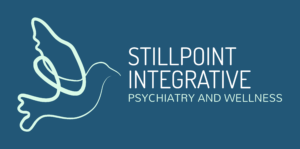Mood disorders, including bipolar disorder, are complex mental health conditions that affect millions of people worldwide.
These disorders impact emotions, energy levels, and daily functioning, often requiring long-term management.
In this article, we will explore the different types of mood disorders, symptoms, causes, and treatment options, with a focus on holistic approaches to mental well-being.
What Are Mood Disorders?
Mood disorders are psychiatric conditions characterized by significant disturbances in emotional state. The most common mood disorders include:
- Bipolar Disorder: A condition marked by extreme mood swings that include manic and depressive episodes.
- Major Depressive Disorder (MDD): Persistent sadness, loss of interest, and other symptoms that interfere with daily life.
- Cyclothymic Disorder: A milder form of bipolar disorder involving chronic mood fluctuations.
- Persistent Depressive Disorder (Dysthymia): A long-term, less severe form of depression.
Types of Bipolar Disorder
Bipolar disorder is categorized into different subtypes based on the severity and pattern of mood episodes:
- Bipolar I Disorder: Characterized by at least one manic episode, often accompanied by major depressive episodes.
- Bipolar II Disorder: Defined by episodes of hypomania (a less severe form of mania) and major depression.
- Cyclothymic Disorder: Frequent mood swings that do not meet the criteria for full manic or depressive episodes.
Symptoms of Mood Disorders
Mood disorders present with a wide range of symptoms that can vary in intensity and duration. Common symptoms include:
Depressive Symptoms:
- Persistent sadness or emptiness
- Loss of interest in activities
- Fatigue or low energy
- Sleep disturbances
- Feelings of worthlessness or guilt
- Difficulty concentrating
- Suicidal thoughts or behaviors
Manic Symptoms (Bipolar Disorder):
- Elevated or irritable mood
- Increased energy or restlessness
- Decreased need for sleep
- Racing thoughts and rapid speech
- Impulsivity and risky behaviors
- Grandiosity or inflated self-esteem
Causes and Risk Factors
The exact cause of mood disorders is not fully understood, but several factors contribute to their development:
- Genetic Factors: Family history increases the risk of mood disorders.
- Brain Chemistry and Function: Neurotransmitter imbalances play a role in mood regulation.
- Environmental Stressors: Trauma, chronic stress, and adverse life events can trigger episodes.
- Hormonal Imbalances: Changes in hormone levels may influence mood stability.
- Medical Conditions: Thyroid disorders, chronic illnesses, and substance use can contribute to mood instability.
Treatment Options
Managing mood disorders often requires a combination of treatments tailored to an individual’s needs. Treatment approaches include:
1. Psychiatric Medications
- Mood Stabilizers: Lithium, valproate, and lamotrigine help manage mood swings.
- Antidepressants: Used cautiously in bipolar disorder to prevent manic episodes.
- Atypical Antipsychotics: Help control severe mood episodes.
- Anxiolytics: Used for anxiety symptoms associated with mood disorders.
2. Psychotherapy
- Cognitive Behavioral Therapy (CBT): Helps individuals recognize and manage thought patterns that contribute to mood disturbances.
- Interpersonal Therapy (IPT): Focuses on relationships and emotional regulation.
- Dialectical Behavior Therapy (DBT): Effective for mood instability and emotional dysregulation.
3. Holistic and Lifestyle Approaches
- Nutrition: Omega-3 fatty acids, magnesium, and a balanced diet support brain health.
- Exercise: Regular physical activity improves mood and reduces symptoms.
- Sleep Hygiene: Maintaining a consistent sleep schedule stabilizes mood.
- Mind-Body Practices: Meditation, acupuncture, and yoga promote emotional balance.
- Stress Management: Relaxation techniques help reduce triggers and enhance resilience.
When to Seek Help
If mood symptoms interfere with daily life, work, or relationships, professional evaluation is essential.
Early intervention and comprehensive treatment improve long-term outcomes.
At Stillpoint Integrative Psychiatry, we offer personalized, evidence-based care to support mental wellness.
Conclusion
Mood disorders, including bipolar disorder, require a multifaceted approach for effective management.
While psychiatric medications and psychotherapy remain central to treatment, holistic strategies can enhance stability and well-being.
If you or a loved one is struggling with mood-related challenges, seeking professional support can make a meaningful difference in achieving lasting balance and resilience.
Stillpoint Integrative Psychiatry and Wellness is committed to providing compassionate, integrative mental health care. Contact us today to learn more about personalized treatment options.

Andrew Jecklin, PMHNP-BC, Owner
Founder of Stillpoint Integrative Psychiatry and Wellness, and with full prescribing authority in Virginia, Andrew has well over 20 years of experience in healthcare focused on the connection of mind and body. A father of 5 kids, he resides in Harrisonburg, Virginia with his wife and family.
